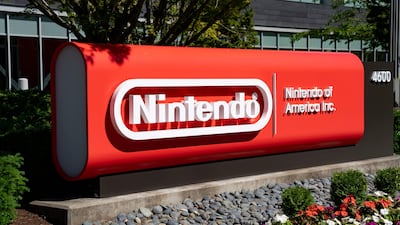While the wider world of tech is diving headfirst into adopting artificial intelligence into their systems, Nintendo has signalled that it will not be doing the same anytime soon.
During a Q&A session with investors, Nintendo’s president Shuntaro Furukawa said: “Generative AI, which is becoming a big topic recently, can be used in creative ways, but we recognise that it may also raise issues with intellectual property rights.
“We have decades of know-how in creating the best gaming experiences for our players. While we are open to utilising technological developments, we will work to continue delivering value that is unique to Nintendo and cannot be created by technology alone.”
Furukawa’s comments on AI signal that Nintendo will probably stand alone, at least for a while, as its competitors have expressed a more supportive tone when speaking on the developing technology.
Microsoft, the maker of Xbox, previously revealed plans to add an AI chatbot to its consoles, aimed at assisting players with queries and refunds. The adoption is restricted to consumer services at the moment, but Microsoft executives outlined an “Xbox Everywhere” vision that included “AI innovation” as a central part of that ambition.
PlayStation, on the other hand, is rumoured to be preparing for a new PS5 Pro console, which will include PlayStation Spectral Super Resolution, an upscaling technique that uses AI to improve the quality of images.

These moves signal that unlike Nintendo, PlayStation and Xbox will be integrating AI into their consoles – and most likely into their games in the near future. Acceptance and adoption are not necessarily a bad thing, but Furukuwas's point still stands – the further you go into the world of AI, the more issues concerning intellectual property rights may arise.
Before the AI boom of the past two years, games might have been considered champions of artificial intelligence. For generations, players would play against the computer, trying to beat it. The commands and code entered for the computer to be both efficient and believable is an early form of artificial intelligence.
The issues occur when AI begins making creative decisions, rather than smartly executing the commands given to it. This, even with legal issues aside, is the crux of the generative AI problem.
Imagine for example if Super Mario came face to face with his arch-enemy Bowser, who instead of reciting his written dialogue, goes on a tangent about the political dynamics of the former Yugoslavian states.
The assumption now is that if generative AI is introduced to this environment, then the possibilities are endless. Conversations could be had with non-playable characters or missions could be generated on the fly, making it possible to play a game for years before it becomes old.
But this only sounds good in theory. In practice, giving AI the power to create itself, to act as both artist and author, removes all the benefits of both. Texts could turn inflammatory, missions could become repetitive and stale, stories could meander into the distance and the artistic and narrative merit could very well disappear entirely.
Nintendo’s current stance should be exemplary to others – avoid jumping right in. Not to say Xbox and PlayStation are doing something wrong, but it doesn’t hurt to be careful, especially with a new and growing piece of technology.
More and more video game developers will eventually adopt the use of AI in their processes, most likely ushering in a new age for the medium. The prediction on my part is that this will be short-lived, and gamers will want to go back to what we have known for years – a good game is the result of creative artists, designers and developers.


